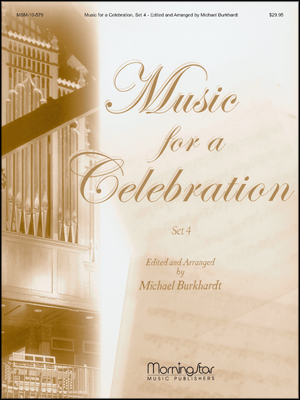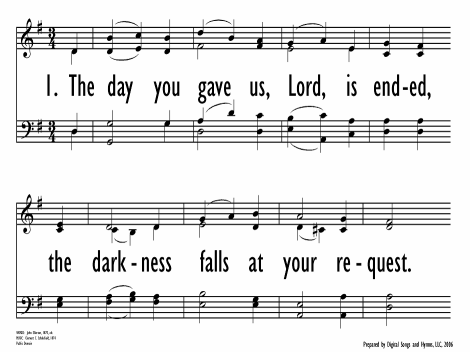- |
User Links
LES COMANDEMENS DE DIEU

LES COMANDEMENS DE DIEU
Composer (attributed to): Louis Bourgeois; Harmonizer: Claude Goudimel (1564)Published in 188 hymnals
Printable scores: PDF, MusicXML
Audio files: MIDI, Recording
Composer (attributed to): Louis Bourgeois
Louis Bourgeois (b. Paris, France, c. 1510; d. Paris, 1561). In both his early and later years Bourgeois wrote French songs to entertain the rich, but in the history of church music he is known especially for his contribution to the Genevan Psalter. Apparently moving to Geneva in 1541, the same year John Calvin returned to Geneva from Strasbourg, Bourgeois served as cantor and master of the choristers at both St. Pierre and St. Gervais, which is to say he was music director there under the pastoral leadership of Calvin. Bourgeois used the choristers to teach the new psalm tunes to the congregation. The extent of Bourgeois's involvement in the Genevan Psalter is a matter of scholarly debate. Calvin had published several partial psalter… Go to person page >Harmonizer: Claude Goudimel
 The music of Claude Goudimel (b. Besançon, France, c. 1505; d. Lyons, France, 1572) was first published in Paris, and by 1551 he was composing harmonizations for some Genevan psalm tunes-initially for use by both Roman Catholics and Protestants. He became a Calvinist in 1557 while living in the Huguenot community in Metz. When the complete Genevan Psalter with its unison melodies was published in 1562, Goudimel began to compose various polyphonic settings of all the Genevan tunes. He actually composed three complete harmonizations of the Genevan Psalter, usually with the tune in the tenor part: simple hymn-style settings (1564), slightly more complicated harmonizations (1565), and quite elaborate, motet-like settings (1565-1566). The vario… Go to person page >
The music of Claude Goudimel (b. Besançon, France, c. 1505; d. Lyons, France, 1572) was first published in Paris, and by 1551 he was composing harmonizations for some Genevan psalm tunes-initially for use by both Roman Catholics and Protestants. He became a Calvinist in 1557 while living in the Huguenot community in Metz. When the complete Genevan Psalter with its unison melodies was published in 1562, Goudimel began to compose various polyphonic settings of all the Genevan tunes. He actually composed three complete harmonizations of the Genevan Psalter, usually with the tune in the tenor part: simple hymn-style settings (1564), slightly more complicated harmonizations (1565), and quite elaborate, motet-like settings (1565-1566). The vario… Go to person page >Tune Information
| Title: | LES COMANDEMENS DE DIEU |
| Composer (attributed to): | Louis Bourgeois |
| Harmonizer: | Claude Goudimel (1564) |
| Meter: | 8.8.8.8 |
| Incipit: | 11232 43213 43217 |
| Notes: | Tune also known as: BOURGEOIS, COMMANDMENTS, GOUDIMEL, LES COMMANDEMENS DE DIEU, HOUR OF NEED, WHEN IN THE HOUR OF UTMOST NEED, BAVA |
| Key: | A♭ Major |
| Source: | Genevan Psalter, 1547;Geneva Psalter, 1547; Setting, 1573;Genevan 141;German Psalter, 1562;French. 1540;Wg Zum Zehn-Gebote-Lied Guillaume Franc 1543 |
| Copyright: | Public Domain |
Alternative Tunes
Notes
LES COMMANDEMENS (French for "the commandments"), a rich and graceful tune in the Hypo-Ionian mode (major), was used in the Genevan Psalter (1547) for the Decalogue and for Psalm 140, and later in British psalters and in the Lutheran tradition. The first setting in the Psalter Hymnal derives from Claude Goudimel's (PHH 6) 1564 harmonization; his original harmonization with the melody in the tenor (on facing page in the hymnal) may be used for unison or choral stanzas.
Here are two performance suggestions: (a) the congregation or choir can sing stanzas 1 and 9 as a frame around the solo reading of stanzas 2 through 8 or of the corresponding verses from Scripture; (b) all can sing stanzas 1 and 9 (with the choir singing in harmony from the second setting), and the congregation can sing stanzas 2 through 8 antiphonally in unison. Organists can find preludes by Lutheran composers under the German title for this chorale tune: WENN WIR IN HÖCHSTEN NÖTEN SEIN.
--Psalter Hymnal Handbook, 1987
Timeline
Arrangements
Harmonizations, Introductions, Descants, Intonations
|
Organ Solo
|
Media
The Cyber Hymnal #103
Text: All Mankind Fell in Adam's FallThe Cyber Hymnal #1356
Text: Enslaved by Sin and Bound in ChainsThe Cyber Hymnal #2760
Text: I Come to Thee, O Blessèd LordThe Cyber Hymnal #4804
Text: O Faithful God, Thanks Be to TheeThe Cyber Hymnal #7530
Text: When in the Hour of Utmost NeedThe Cyber Hymnal #11307
Text: O Lord Of Hosts, The Earth Is ThinePsalter Hymnal (Gray) #153
Text: The Ten Commandments- MIDI file from Christian Classics Ethereal Hymnary #792
- MIDI file from The Cyber Hymnal #103
- MIDI file from The Cyber Hymnal #1356
- MIDI file from The Cyber Hymnal #2760
- MIDI file from The Cyber Hymnal #4804
- MIDI file from The Cyber Hymnal #7530
- MIDI file from The Cyber Hymnal #9473
- MIDI file from The Cyber Hymnal #11307
- MIDI file from Psalmodia Germanica: or, The German Psalmody: translated from the high Dutch together with their proper tunes and thorough bass (2nd ed., corr. and enl.) #184
- MIDI file from Psalter Hymnal (Gray) #153
- MIDI file from Psalter Hymnal (Gray) #153
- Audio recording from Small Church Music #1529
- Audio recording from Small Church Music #1529
- Audio recording from Small Church Music #1852
- Audio recording from Small Church Music #2605
- Audio recording from Small Church Music #6810
- MIDI file from Sing! A New Creation #73
- MIDI file from The Whole Booke of Psalmes: collected into English meeter #87e


 My Starred Hymns
My Starred Hymns





